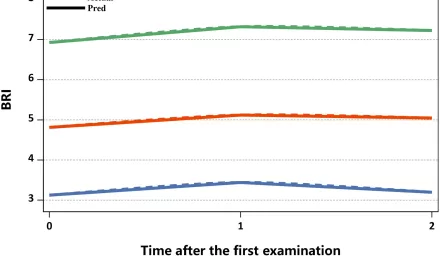A recent study published in JAMA Network Open on February 17 has found that higher calcium intake is associated with a reduced risk of colorectal cancer (CRC) across different tumor sites and calcium sources.
The study, conducted by Semi Zouiouich, Ph.D., M.P.H., and colleagues from the National Cancer Institute in Bethesda, Maryland, analyzed data from the National Institutes of Health-AARP Diet and Health Study. The research involved participants aged 50 to 71 years at baseline (October 1995 to May 1996) who self-reported good health and did not have extreme caloric or calcium intake levels.
Study Findings
The researchers identified 10,618 first primary CRC cases during 7,339,055 person-years of follow-up among 471,396 participants who were cancer-free at the study’s start. The mean total calcium intake varied significantly between the lowest and highest intake groups. For the lowest quintile (Q1), women had an average intake of 401 mg/day, while men consumed 407 mg/day. In contrast, for the highest quintile (Q5), women consumed 2,056 mg/day, and men 1,773 mg/day.
A significant reduction in CRC risk was observed with higher total calcium intake. Comparing Q5 to Q1, the hazard ratio (HR) was 0.71, with a 95% confidence interval (CI) of 0.65 to 0.78 (P < 0.001 for trend). These results were consistent regardless of calcium sources or tumor locations.
Impact on Different Racial and Ethnic Groups
Among non-Hispanic Black participants, the mean calcium intake ranged from 382 mg/day (Q1) to 1,916 mg/day (Q5). However, no statistically significant association was found between total calcium intake and CRC risk in this subgroup (HR, 0.60; 95% CI, 0.32 to 1.13; P = 0.12 for trend).
The study did not find significant differences in the effect of calcium intake on CRC risk across racial and ethnic groups. However, the authors emphasized the need for further research focusing on racial and ethnic minority populations to better understand the potential benefits of calcium intake in CRC prevention.
Conclusion
“While calcium intake may vary by race and ethnicity, the potential for calcium to play a role in CRC prevention appeared to be consistent across racial and ethnic groups; still, research in racial and ethnic minority populations is needed,” the authors concluded.
Disclaimer
This article summarizes findings from a published research study and is intended for informational purposes only. It does not constitute medical advice. Readers are encouraged to consult healthcare professionals before making dietary or health-related decisions.












